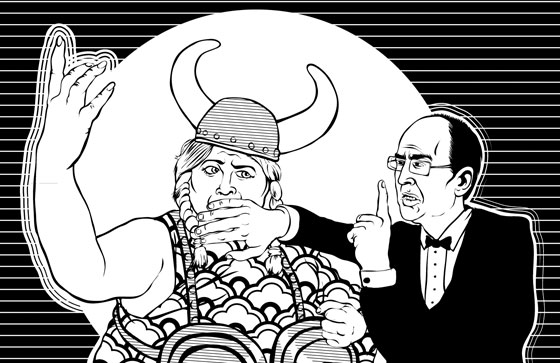
Peter Gelb, the general manager of the Metropolitan Opera, presides over a gleefully quarrelsome universe. Opera is an art of exaggeration, and part of the pleasure of going is the hyperbolic arguments at intermission. Renée Fleming shouldn’t even be allowed to sing in the shower! Are you joking? She had me in tears. I was bawling! Now that perpetual blowtorch of commentary has been turned ferociously on Gelb, the fractious community of opera fans united in its rage toward him. (“Whatever is going on in his power-hungry brain, I hope that his reign is near its end,” was a characteristic comment on the opera blog Parterre Box.) He has earned that assault not with a bad casting decision or an especially egregious production—though he’s certainly taken his lumps for those. Rather, Gelb—a onetime publicist who is the son of former Times managing editor Arthur Gelb—has tried to stifle what gets said and written about the Met and about him. This is like banning the Bravos! after an aria—a hopeless attempt to regiment opera fans’ responses.
The trouble began in April, when Gelb called Laura Walker, the president of New York Public Radio, to complain about a web post in which a freelance blogger wrote that his Met “bears the mothball-like scent of an oligarchy.” The post was deleted. Then he objected to an essay in Opera News in which the magazine’s features editor claimed to channel the Met’s unhappy audience: “The public is becoming more dispirited each season by the pretentious and woefully misguided, misdirected productions foisted on them.” Gelb roared, and opera’s most comprehensive periodical—which is published by the Metropolitan Opera Guild and largely funded by the Met—announced that it would stop reviewing operas staged by the world’s most prestigious company. The next day, the Met’s press office sent out a release reversing that decision—simultaneously signaling that the magazine was free to criticize and that the company, not the editors, was calling the shots.
The Opera News fracas was just Gelb’s latest bout of defensiveness. After the Times’ Anthony Tommasini suggested that as chief executive, he might delegate some artistic control, Gelb called the critic into his office and told him, “I’m the director of productions”—effectively, Le Met, c’est moi. I accepted a similar invitation to discuss some reviews I had written for New York. On that occasion, he was willing to concede problems with certain productions. But now he has hunkered down and taken to bullying the very people who care most about the art form he is ostensibly there to advance.
The Met has entered a period of dictatorial decadence. James Levine, still the nominal music director, has been sidelined by chronic back problems, and his presumptive successor, Fabio Luisi, is waiting meekly to inherit the post. In the meantime, Gelb stands as the near-total executive authority on the company’s finances, productions, casting, and repertoire. By trying to silence the healthy rowdiness of the opera world’s discussions, Gelb risks cultivating an attitude far more dangerous than animosity: indifference. Opera thrives on strife and passion, but it cannot survive on silence. Gelb’s not just killing stories; he’s setting fire to the Met.
Have good intel? Send tips to intel@nymag.com.
